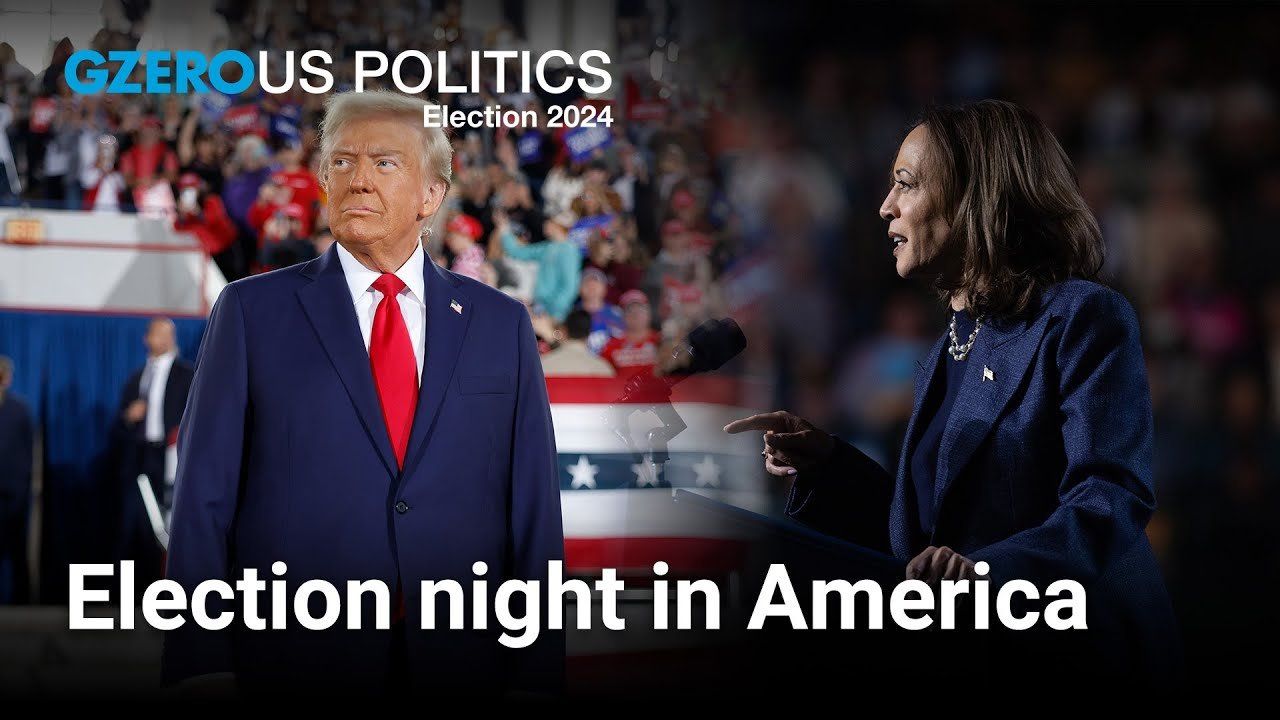November 04, 2024
Jon Lieber, Eurasia Group's head of research and managing director for the firm's coverage of United States political and policy developments, shares his perspective on US politics from Washington, DC.
This is what we're watching this week in US politics. It is, at long last, election week. The US has one of the longest most exhausting presidential election cycles in the world. That basically begins two years before general Election Day. And Tuesday of this week, it all comes to a conclusion. It's unlikely that we will know the results of the election on Tuesday night, although if Harris is significantly ahead in the early counting states, like North Carolina, that's going to be a strong signal that she's probably winning the overall electoral college. Seven key swing states to watch. Trump looks like he has the advantage in Arizona and Nevada. And the election, like it did in 2016, could potentially come down to the three so-called Rust Belt states of Pennsylvania, Wisconsin, and Michigan. On election night, Wisconsin and Michigan are likely to be known, but possibly not till late in the night. They were called for Biden late in the night on 2020.
Pennsylvania is the real outlier when it comes to counting votes, and this is because Pennsylvania does not count its early ballots until the day of the election, which means that the people who vote in person in Pennsylvania, who tend to be Republicans, we'll know where they are when the polls close in the evening, East Coast time, on Tuesday night. But then overnight, you expect to see what's been called the 'blue shift,' which is as those early and absentee ballots get counted, which are primarily democratic, you will see Harris's vote share start to climb. So if the outcome of the race is not known because the outcome in North Carolina is ambiguous or Trump is leading, and there's no clear winner in Wisconsin and Pennsylvania that night, or it looks like a close race, officially calling this race could drag on until much later in the week, just exactly what happened in 2020. Now, President Trump tried to exploit that gap in 2020 by saying he clearly had won in Pennsylvania, and all these late-breaking votes were all just fraudulent, which isn't true, but that's what he claimed. And that could happen again this cycle.
The only situation in which we would get a genuinely ambiguous outcome, where we wouldn't know the outcome for weeks at a time, is if, one, there's evidence of widespread massive election fraud, which has not been the case at any time in recent US history and is a very low probability event. Or if it's such a close race in one of the key swing states, like Pennsylvania, Michigan, or Georgia, where we don't actually know the winner because the margins are within several hundred votes. There is precedent for state-wide elections being overturned in recent US history, but typically, those elections come down to about 500 votes. There's been 31 recounts from the year 2000 before the 2020 presidential election, three were overturned because the margin was so incredibly close. And so, this is a very, very rare event, and it's unlikely to play out in this election cycle, but it could. You never know.
The polls are suggesting this is a very close race. So stay tuned for more watching this election week, and hope you find a nice, comfortable place to watch the election results because it could take a long time to count these ballots.
From Your Site Articles
- Top threats to US election security ›
- How Iran is messing with the US election ›
- US election security and the threats of foreign interference: CISA Director Jen Easterly discusses ›
- US election campaigns head into the homestretch ›
- Ian Bremmer & Van Jones on instability & the US election ›
- US election: GOP could win a Trump-led sweep - GZERO Media ›
More For You
Mastercard Economic Institute's Outlook 2026 explores the forces redefining global business. Tariffs, technology, and transformation define an adaptive economy for the year ahead. Expect moderate growth amid easing inflation, evolving fiscal policies, and rapid AI adoption, driving productivity. Digital transformation for SMEs and shifts in trade and consumer behavior will shape strategies worldwide. Stay ahead with insights to help navigate complexity and seize emerging opportunities. Learn more here.
Most Popular
- YouTube
Despite a ceasefire in Gaza, Israel is still not letting foreign journalists in to independently verify what’s happening on the ground, CNN’s Clarissa Ward tells Ian Bremmer on GZERO World.
- YouTube
On Ask Ian, Ian Bremmer breaks down the steady escalation of US pressure on Venezuela and why direct military action is now a real possibility.
US President Donald Trump arrives to announce reciprocal tariffs against US trading partners in the Rose Garden of the White House in Washington, DC, USA, on April 2, 2025.
POOL via CNP/INSTARimages.com
From civil conflicts to trade wars to the rise of new technologies, GZERO runs through the stories that have shaped this year in geopolitics.
© 2025 GZERO Media. All Rights Reserved | A Eurasia Group media company.
